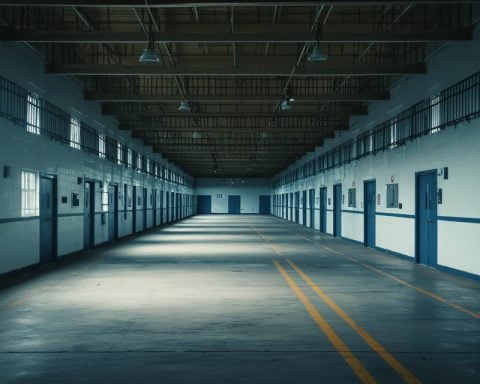Exciting news is brewing in the Alien franchise! Rumors are swirling that Ellen Ripley, played by the iconic Sigourney Weaver, may make an astonishing appearance in the upcoming sequel, Alien: Romulus. This speculation sparked from industry insider Daniel Richtman’s recent Patreon post, hinting at the potential use of digital de-aging technology to bring Ripley back to the big screen.
Details remain vague, leaving fans to wonder whether Weaver would film new scenes or if another actress would portray a young version of this beloved character. Regardless, the idea of de-aging revitalizes discussions about how to navigate legacy characters in modern cinema.
The initial film, released in August 2024, received a warm welcome, garnering over $350 million worldwide with just an $80 million budget. A follow-up was quickly announced, although the official release date remains unconfirmed. Director Fede Álvarez has indicated a careful approach to developing the sequel, ensuring that the story meets fan expectations.
While Weaver has expressed openness towards reprising her role in the past, it has to be under the right circumstances. Although the timeline of Alien: Romulus places Ripley in stasis, leaving her character’s involvement uncertain, the filmmakers may devise a creative way for her to return.
As anticipation builds, fans are left eager to see if these whispers of Ripley’s return will come to fruition, potentially redefining the franchise once again.
The Future of Legacy Characters: A Cultural Shift in Cinema
The revival of beloved characters such as Ellen Ripley in the Alien franchise heralds a seismic shift in how cinema navigates legacy characters and engages fanbases. The embrace of digital de-aging technology underscores a broader trend where studios increasingly prioritize nostalgia and familiarity in storytelling. This technique not only allows filmmakers to resurrect iconic figures but also to explore new narratives while appealing to both veteran fans and a younger audience unacquainted with the original films.
In a society where cultural references often shape identities, the return of figures like Ripley can significantly impact societal conversations about gender and heroism in film. Ripley has long been viewed as a feminist icon, and her potential resurgence could inspire discussions surrounding the representation of women in action roles. As studios look to capitalize on established franchises, they may inadvertently bolster long-overdue dialogues about diversity within strong character arcs.
Furthermore, from an economic standpoint, leveraging recognizable characters with proven popularity can significantly enhance profitability. The initial success of Alien: Romulus, with over $350 million earned against a modest $80 million budget, exemplifies how tapping into nostalgic elements can drive box office success.
As the industry continues to experiment with technology and narrative, the implications of these choices extend beyond entertainment; they reshape cultural narratives and challenge our perceptions of heritage in storytelling. The long-term significance lies in how these films will influence future generations’ perspectives on character creation and representation.
The Return of Ripley? Alien: Romulus Sparks Excitement with De-Aging Technology!
Alien: Romulus and the Next Chapter in the Franchise
The Alien franchise is set to make waves again with the upcoming sequel, Alien: Romulus. Fans are buzzing with excitement as rumors suggest the iconic character Ellen Ripley, famously portrayed by Sigourney Weaver, might make a stunning return. This speculation arose from industry insider Daniel Richtman, who hinted at the potential use of digital de-aging technology for Ripley’s revival in this new installment.
The Possibility of Digital De-Aging
The prospect of using digital de-aging technology opens new narrative possibilities for legacy characters in cinema. If utilized properly, this technology could seamlessly integrate Weaver’s performance with new storylines, allowing her to reprise her role without the constraints of age. This trend of using digital de-aging has been seen in films like “The Irishman” and “Star Wars: Rogue One,” raising expectations about its application in Alien: Romulus.
Speculations Surrounding Ripley’s Return
Details surrounding Ripley’s potential involvement remain decidedly unclear. It’s uncertain whether Weaver will film new scenes or if another actress will step in to portray a younger version of her character. The timeline of Alien: Romulus, which finds Ripley in stasis, complicates matters further. However, the filmmakers could devise a clever plot twist that allows Ripley to feature prominently, thus bridging the past with new narratives.
Insights on the Franchise’s Evolution
The original film in this latest series released in August 2024 was a box office success, earning over $350 million worldwide against an $80 million budget. Such impressive figures indicate a solid fanbase eager for more content. Director Fede Álvarez has emphasized a meticulous approach to crafting the sequel’s story, aiming to align with fan expectations while introducing fresh elements.
The Future of Alien: Romulus
With the anticipation growing, fans are left to ponder the implications of these developments for the Alien franchise. The balance between nostalgia and innovation is crucial as the filmmakers navigate the storyline of Ripley. The potential reintroduction of Ripley could redefine how legacy characters are integrated into modern cinema.
Key Features of Alien: Romulus
– Genre: Sci-Fi Horror
– Director: Fede Álvarez
– Release Date: To be confirmed
– Budget: $80 million
– Box Office: Over $350 million
Pros and Cons of Digital De-Aging in Cinema
Pros:
– Preserves beloved characters for new audiences.
– Enhances storytelling possibilities across timelines.
– Maintains continuity with older films.
Cons:
– May lack authenticity if the technology isn’t executed well.
– Risks alienating fans if overused.
– Can overshadow new characters and storylines.
Conclusion
As speculations swirl about Ellen Ripley’s potential return in Alien: Romulus using digital de-aging technology, fans remain hopeful and excited. The careful development from the filmmakers, combined with a solid box office performance from the previous movie, points to a promising future for the Alien franchise. As we await confirmation, the creative possibilities remain tantalizingly open.
For more updates on the Alien franchise, check out 20th Century Studios.



















